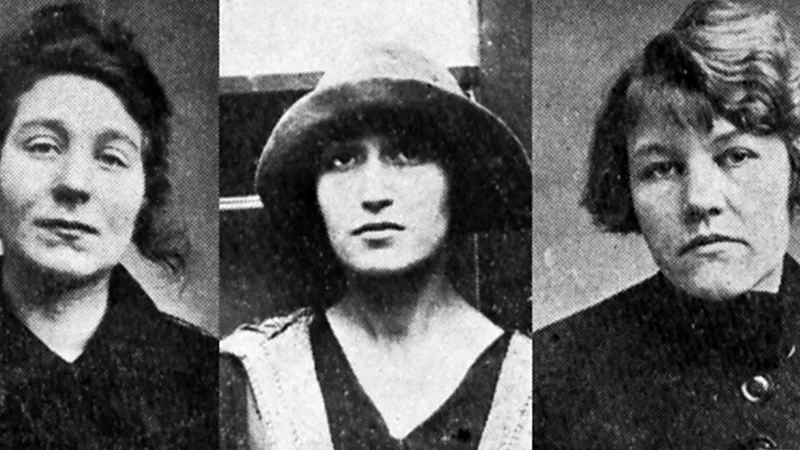What the outdoor smoking ban in Australia could tell us about UK's future
Jack Berman takes a long drag and then exhales, slowly, in the covered terrace of a 150-year-old pub in a Sydney beach suburb.

Around him are others like him: pub goers enjoying the winter sun, a beer glass in one hand, a cigarette in the other.
On the other side of the pub, patrons are tucking into their lunches. There’s no cloud of smoke around their heads, nor anyone angled away from their neighbour - it's a no-smoking area.
This is how smoking is regulated at pubs in Australia, where bans at many outdoor spaces have been in place for two decades.
As the UK government looks to clamp down on outdoor smoking, could Australia - where smoking has plummeted over the past 25 years - be a model? And how have pubs there coped?
Prime Minister Sir Keir Starmer says his government is looking at tightening outdoor smoking rules to help reduce the number of preventable deaths linked to tobacco use and the burden on the NHS. We don’t know the scope of what the UK government is considering.
In Australia, rules vary from from state to state but, broadly speaking, at pub gardens and parks, designated smoking sections or zones are set up to protect non-smokers from secondhand smoke. At beaches and playgrounds, smoking is banned altogether.
Mr Berman has been smoking since he was 15 and has lived through all of Australia’s reforms.
“Back then you could smoke on trains, in cinemas, everywhere really,” he says.
But while pub culture has evolved, he doesn’t feel left behind - evidenced by the fact that he’s having a pint at midday with an old mate.
A short walk away, there's a table of young men who are all self-confessed “social smokers”. They smoke when they’ve had a bit too much to drink, but not often, they say.
When that urge strikes, James Beltrame, 28, doesn’t mind having to move to another section of the pub. He likes the random social interactions in the smoking area: "You sort of meet new people... it creates a different atmosphere."
But Kenny James, 26, finds it all a bit grim. “I feel like [smoking areas] are often away from everything and in some random spot, like it's not an experience that you seek out.”
Having grown up in smoke-free environments though, everyone sitting around the table agrees on one thing: having to breathe in secondhand fumes in public would be “a bit bleak”.
“Travelling to Europe and seeing people smoke in restaurants outdoors, it’s a novelty and for a minute it was cool," Kenny says. "But then after a while you realise... to have butts everywhere on the ground, it’s pretty gross."
“Like right now for example, I’m pretty glad no one is blowing smoke in my face,” their other mate Ben adds.
Not everyone feels the same way about the rules in pubs.
A few blocks away 33-year-old security guard Rob - who would only give his first name - is on his break, smoking in an alleyway.
He still vividly remembers a time when, as he puts it, Australians loved to smoke.
“Back in the 80s teachers would smoke in classrooms, parents would smoke on public transport. Now they’re trying to police everything,” he says, taking a drag of his lunchtime cigarette, a large "No Smoking" sign hovering mere inches above his head.
"Smokers pay top dollar for cigarettes and we’re brutally discriminated against," he says.
"Nine times out of ten, there’s no benefit to actually visiting a licensed venue because you won’t be able to enjoy a drink and a smoke at the same time," he says.
While some pubs have big beer gardens, many don’t have any outdoor space so the smoking section is relegated to the gambling room - a controversial but common fixture in pubs across Sydney.
"It’s affecting licensed venues, they’re losing customers," Rob says. "Now they try to keep them inside the VIP gambling lounge which leads to smokers spending money on gambling machines, and we all know gambling isn’t good for anyone.
"I’ve definitely noticed less people out and about smoking in public as a result of these laws."
For public health experts, that’s exactly the goal.
Having an impact
Daily smoking rates in Australia are now down to 8.3% - from 16% in 2000 and 24% in 1991.
Experts attribute that to a mix of policies, including banning adverts for tobacco, health warnings and plain packaging on cigarettes, and high product taxes.
But smoke-free environments have been key to stamping out smoking in public, several researchers told the BBC.
Lawmakers took smoking bans outdoors in the 2000s. Health authorities were concerned about the impact of secondhand smoke, when a non-smoker breathes in smoke exhaled by others.
In its guidance about passive, or secondhand, smoking, Cancer Research UK says all forms of it are "unsafe". The UK's NHS says second-hand smoke "is a lethal cocktail of more than 4,000 irritants, toxins and cancer-causing substances".
“We ban smoking to protect the health - primarily - of the people who work there, but also for other people dining who are non-smokers,” tobacco control researcher and associate professor Becky Freeman, from the University of Sydney, told the BBC.
Meanwhile Australia’s bans in areas like beaches and parks aren't necessarily about secondhand smoke "because there’s plenty of fresh air around".
Instead it's more about “preventing litter, keeping outdoor spaces safe and role-modelling”, she says.
In Sydney, home to over five million people, smoking and e-cigarettes are banned in many outdoor public areas, including within 10m of playgrounds, outside commercial outdoor dining areas and in public transport stops.
"In Australia we’ve been very successful in making smoking no longer socially acceptable, no longer normal."
How have pubs coped?
In the UK, leading figures in the hospitality sector worry that outdoor smoking restrictions could hinder some businesses, particularly pubs.
And for the pub trade in Australia there was definitely some initial pushback, figures from both the hospitality industry and medical profession recall.
“Pubs and clubs in Australia can sell tobacco, so there’s sort of a vested interest in prohibiting any restrictions that are going to limit consumers from purchasing [cigarettes] from them,” Alecia Brooks, from the nationally-funded charity the Cancer Council, says.
The research indicates smokers also tend to drink more, and some licensed premises noticed a dip in trading when the regulations first changed.
“[A few] publicans reported between 10%-15%,” says Craig Shannon, the head of Clubs ACT, the capital territory branch of the national body for licensed clubs.
But it levelled out over time, he says, and "the regulations always came in gradually which really helped".
Australian publicans say pub culture in the country has changed since the ban
Mick Bain has been a publican for 15 years and runs two venues in the inner Sydney suburb of Glebe.
He agrees that smokers tend to drink more – “so maybe there was a bit of a loss of revenue there initially. But as more families started coming to us for pub meals, it sort of balanced itself out.”
A pint these days in Sydney might cost upwards of A$12 (£6.20), but a meal would be at least A$20 (£10.30).
So the long-term impact has been positive, he argues. "Having smoke-free outdoor dining tables actually invited more families into our spaces and changed the business... and smokers can still smoke outside in other areas."
Enforcement of the rules is fairly simple, he says. “We just have to police the regulations. We can’t have ashtrays on dining tables, for example.”
Mr Shannon, the Clubs ACT chief executive, says that it does depend on what the smoking area is like and whether it leaves people feeling cut off from “the social or service aspects of the venue”.
“No one is going to a pub to smoke outside by themselves - as an ex-smoker I can tell you how lonely that can be, when you’ve got to go and smoke by yourself like a pariah.”
And he warns that any major reforms that are “done quickly without education” can “really impact trading”.
But the researcher, Prof Freeman, says businesses shouldn’t be too concerned.
“There’s often fear that when you ban smoking in licensed premises that revenue is going to plummet - but when you look globally at the research at smoking bans on hospitality venue revenue you actually see the opposite,” she says.
The World Health Organisation has come to a similar conclusion, labelling the economic harm argument a “myth” and pointing to data that suggests smoke-free policies have a positive long-term impact on the sector.
Ms Freeman also points out that the vast majority of people don't smoke - in Australia, 65% of people aged over 14 have never smoked.
Plus: "Most smokers want to quit and I have never met a smoker who is interested in harming people with their second hand smoke,” she adds.
Jack Berman wholeheartedly agrees.
"Every pub's pretty much got a smoking section," he says.
"I think it's good to keep it away from the food because even as a smoker, I can agree no one likes smoke near where they’re eating."
-BBC







